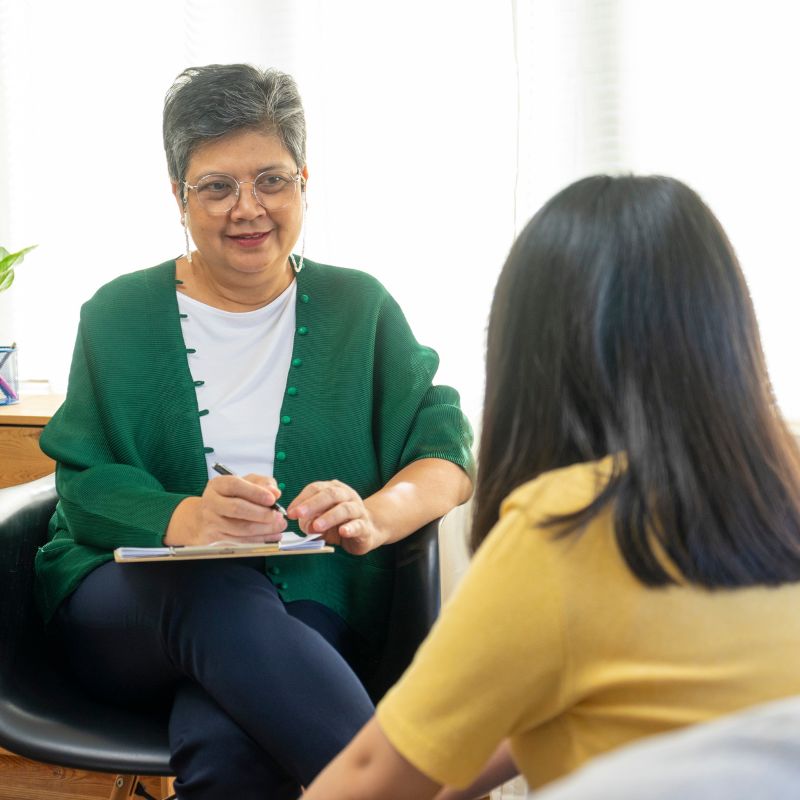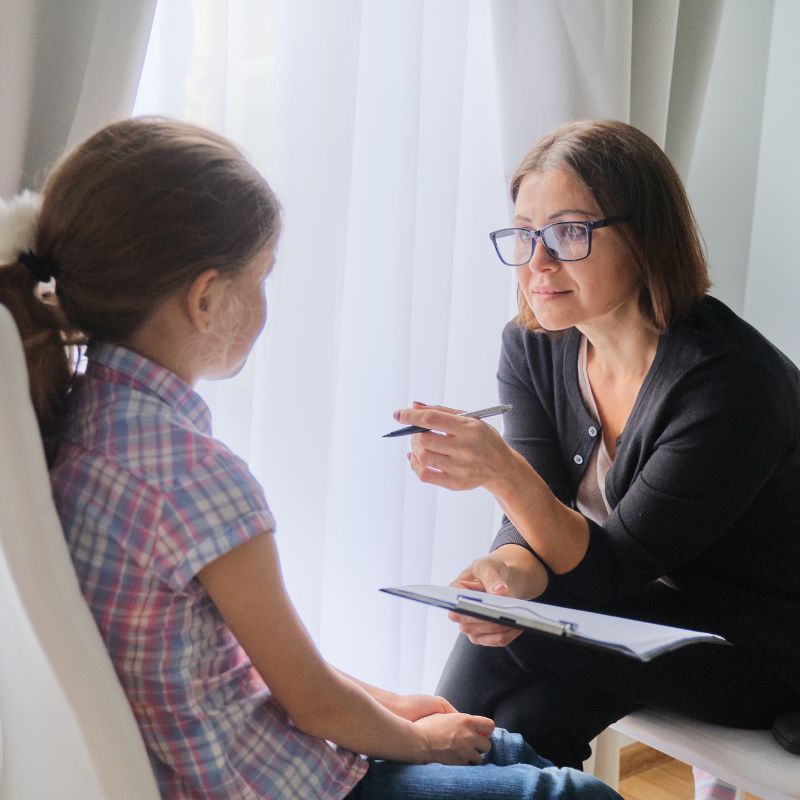Benefits And Importance Of Early Detection Of Disabilities
Every child is different and has a right to learning and an education that will help her realize her full potential. It is a known fact that during the preschool and kindergarten years, children learn at different rates and with different styles. This is due to the way the brain is structured and the way it functions. It is also well-known that learning disabilities tend to emerge in different ways and at different ages from one child to the next.
Children who may initially be thought to have lower intelligence than others may have normal intelligence, but seem to have a problem with learning that prevents them from performing better. Hence, not recognizing the reasons that young children struggle in school will prevent them from getting the help they need.
If a child has a special need, it is best to find out as soon as possible. In other words, early detection of learning disabilities will allow a parent to understand the challenges their child may encounter in the future. Apart from this, the earlier the detection and intervention process is initiated, the greater the likelihood of an improved developmental trajectory. It will also be a more cost and time-efficient approach than settling with the “wait and see” attitude.
Learning to spot the signals early

The earlier the learning disability is recognized, the easier it becomes to take measures that will assist the child face school life successfully. Remember, learning disabilities do not go away, they tend to become more troublesome with time.
While they can be detected at all ages, from preschool to high school, it is always advisable to be aware of and keep track of other developmental milestones such as walking or talking. Observing and looking out for hidden signals will help you spot a learning deficiency easily. For instance, an inability to socialize can be an early sign of a learning disability in children of different ages.
Early detection and diagnosis of symptoms of a developmental delay not only improve the child’s ability to reach their full potential but also prevents the development of low self-esteem and behaviour problems that might interfere with their ability to learn.
Without an early diagnosis of a learning disability, the potential to develop the skills children need to have a normal, successful life as an adult will be greatly reduced.
What to look for

If a child has significant trouble with numbers, letters, or speech, she may have a learning disability. This is primarily due to how the brain processes information that is fed into it through the eyes and ears and through physical movements.
A child with a learning disability may understand a story perfectly well when it is read to her
but will struggle to answer questions about it afterwards. Another child can recite the alphabet without hesitating but falters in naming individual letters that are pointed out. While still another child may have a hard time putting together puzzles, tying shoe laces, or buttoning her shirt.
Research shows early detection is important because 85% of brain development occurs before the child reaches the age of 5. Red flags that could indicate a learning disability include:
- Problems with pronouncing words
- Difficulty in learning the meaning of new words
- Problems following instructions
- Failure to respond to questions
- Difficulty explaining what they want
- Problems rhyming
- Clumsiness
- Lack of balance
- Poor memory
- Impulsive and easily distracted
- Difficulty focusing on a task
- Difficulty learning new concepts
- Becoming frustrated easily
- Easily angered
Get the evaluation right

Diagnosing disabilities is a controversial subject. Some experts believe children are “overdiagnosed”. And diagnosing very young children is particularly controversial because each child will learn at a pace that feels comfortable for them.
The criteria for making a diagnosis of a learning disability may not become apparent until the child is in a grade school. But please note, that any developmental delays can and should be assessed when the child is still in its infancy.
If a parent is worried about a child’s competence with reading, writing, numbers, or speech, they should talk about it with people who are familiar with their child, such as the child’s teacher. They are usually keen observers and quite experienced at spotting the early warning signs of a learning disability.
If the teacher hasn’t as yet raised the issue with you, don’t hesitate to bring up your concerns. Have a word with your child’s paediatrician for inputs others may have overlooked.
Sometimes what you are worrying about may just be a temporary phase that the child will soon outgrow. But don’t wait. You’ll be doing your child a big favour if you trust your instincts and talk to her teacher or doctor if the development seems a little off to you.
Try not to worry about what others might say about what you are thinking. Just go ahead, and do what you know is the right thing to do. After all, what is at stake is your child’s future!
Always go to an expert

A formal evaluation of the cognitive development of preschoolers is usually done by a child psychologist or psychiatrist. An evaluation of learning disability is done in an office setting and may take a couple of hours. The process may involve a child completing a few tasks and playing with toys.
Learning disabilities don’t go away. But much can be done to help the child compensate for the disability and learn to work around the problem she faces.
For instance, her teacher can make special efforts to find ways and introduce programs and present learning materials in different ways. Your child can practice new skills she learned over and over again in a setting that is supportive and very patient.
However, one of the most important things you can do as a parent is to support your child and assist with positive learning experiences. If a child loves animals, present her with a cat or a dog as a pet, it doesn’t matter which. She will very quickly become an expert and will take immense pride in taking very good care of her pet.
Make it a point of going out of your way to boost your child’s self-esteem by encouraging her skills and passions. Plan activities that you know your child can do and be successful at. But don’t try to be an expert on treating learning disabilities yourself.
The best approach will be to provide as much encouragement, love, and patience as possible, then let the experts handle the difficult part of enabling the child to acquire skills that will help her cope with the learning difficulties. Staying close to your child during these times will be of great help. Shower her with love and let the child know that you’ll always be there for her.
Remember to take care of yourself, too. A parent of a child with learning difficulties is under tremendous stress. So do try to de-stress, and meditate because a calm mind will help you manage your emotions better. It will also be reassuring to know that early intervention often provides a better outcome.
About My Gym
It is always the teachers who can help make a good learning experience great. In fact, teachers make or break a child’s experience, so focus on this aspect more than on anything else. Correcting learning difficulties need special programs and inputs that make a child feel comfortable.
The My Gym early intervention and development program for toddlers and young children can significantly improve their mental and physical coping capabilities. When taught correctly, they are the safest activity to engage in. Depending on what might be best for your child, My Gym offers evaluations and performances as a way of tracking and motivating the progress of its pupils.
Visit My Gym at your convenience. Choose a day when you will be relatively free and come over with your child in tow. Your child could be an infant (as young as 6 months), toddler or a preschooler, age is not a bar.
We will work in partnership with you and strive to provide engaging and the best learning experiences. Laying a firm foundation for your child’s personal, academic and future growth.
Please note: My Gym classrooms are thoroughly sanitized every day — the tables, the chairs, the children’s activity stations and everything else the child might touch is made safe and clean. Everyone wears a mask, washes hands frequently, and practices social distancing.
Frequently Asked Questions
Why is early recognition important?
Early recognition of inherent abilities as well as learning disabilities assists parents in understanding their children’s special needs and strategies to support social and emotional development. Recognizing the symptoms of a developmental delay also helps parents of children with special needs better appreciate the challenges their child may encounter in the future.
What are some benefits of early intervention?
Benefits of early detection of learning disabilities include:
1. Provide positive learning experiences to children with special needs
2. Boost the child’s self-esteem
3. Helps children cope with learning difficulties
4. Accelerates a child’s cognitive development in early childhood
5. Improves their language development
6. Strengthens their physical development
How do you determine the presence of a learning disability?
Observing children struggle with fundamental skills such as wobbly speech, poor comprehension, inability to socialise, and failing to solve puzzles or tie shoe laces during early cognitive development assists in the early detection of learning problems.
When are learning disabilities typically identified?
Symptoms of a developmental delay can be detected as early as childhood. Since a significant amount of early brain development occurs by the age of five years from birth, thorough observation of children’s learning problems such as trouble pronouncing words, failing to respond to questions, and being impulsive are the few signs of early detection of learning disabilities.
What are the top 5 learning disabilities?
The following are some of the most common learning disabilities in children:
1. Difficulty grasping new ideas
2. Having difficulty expressing their thoughts, ideas, and emotions
3. Inability to focus on a task and tendency to become easily distracted
4. Lack of ability to socialise and follow instructions
5. Anxiety about memory retention and a lack of balance
When parents recognise these early symptoms of a developmental delay in toddlers and provide the essential support to help them overcome these obstacles, they also encourage social and emotional development in their children.



